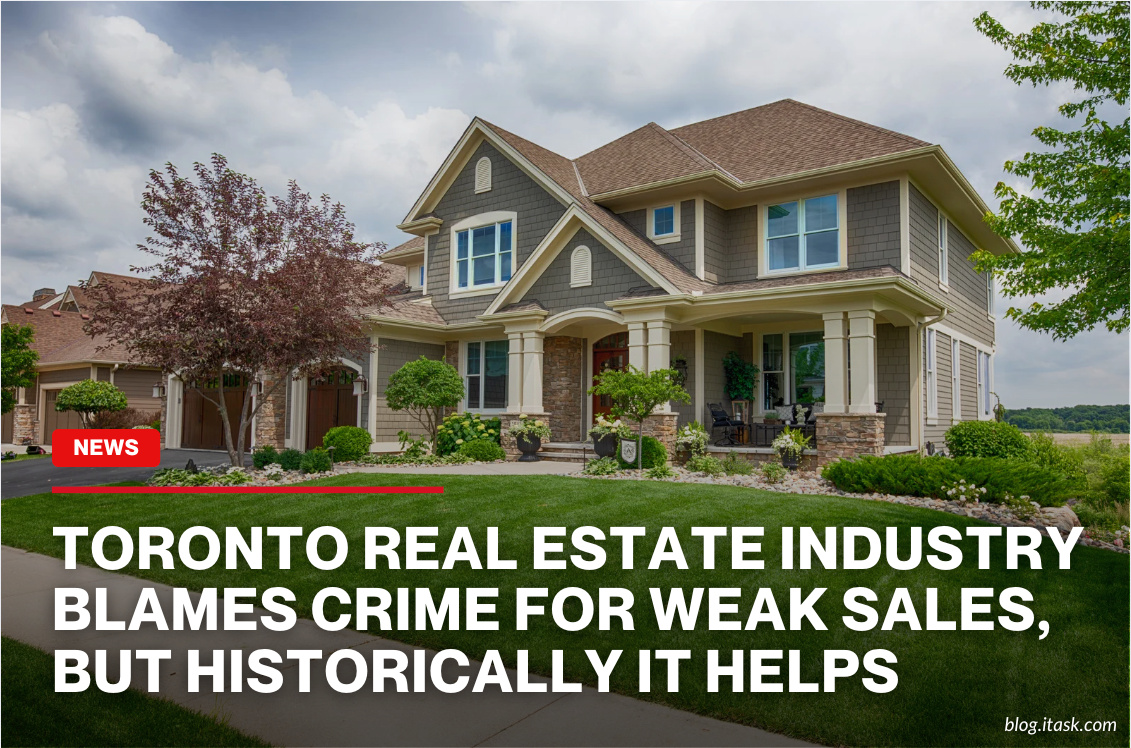Toronto Real Estate Industry Blames Crime For Weak Sales, But Historically It Helps
Toronto Real Estate Industry Blames Crime For Weak Sales, But Historically It Helps

Greater Toronto’s real estate industry is pointing to rising crime as a reason for sluggish home sales. In June, the number of homes sold hit its lowest point in 25 years, while the number of homes available for sale reached an all-time high. Prices also dropped sharply—about 1.8 percent in one month—bringing the average typical home price below \$1 million for the first time in over four years.
Specifically, the board’s chief points to car theft and violent home invasions as factors that are discouraging would-be buyers. The suggestion: people feel unsafe and are choosing to delay or avoid buying homes altogether.
To understand the full picture, consider the numbers. June’s home sales totaled only 6,243 units, making it the weakest June in a quarter-century. On the supply side, new listings rose nearly 8 percent over last year, resulting in more than 31,600 homes on the market—far higher than what's normally considered healthy.
The underlying causes go beyond crime. Many homes are now owned by investors, not people who plan to live there, and those investors are struggling to break even. Millennials, once prime first-time buyers, are aging out of the market or leaving Ontario altogether. In fact, the province is seeing some of its population decline as younger adults move to other regions or even other countries.
But there’s a twist. Historically, areas with elevated crime have attracted large amounts of anonymous, often foreign, capital into real estate—sometimes as a tool for money laundering. In past years, Greater Toronto became a hotspot for this kind of activity, with car theft rings linked to funds being washed through housing purchases. In other words, while current crime worries are scaring off legitimate buyers, in the past those same conditions helped inflate real estate demand by drawing in illicit money.
In short, Toronto’s housing market faces a complex mix of challenges. Rising crime is one visible reason for weak sales. But underneath, demographic pressures, investor fatigue, and changing buyer behaviours are also at play. And history shows that crime doesn’t only hurt markets—it can, perversely, have boosted them in the past.
